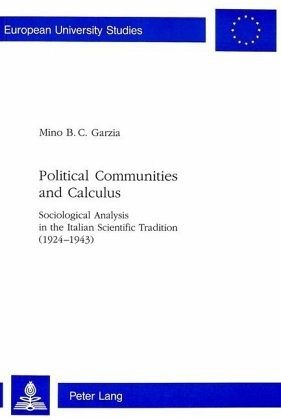Nicht lieferbar

Political Communities and Calculus
Sociological Analysis in the Italian Scientific Tradition (1924-1943). Dissertationsschrift
Versandkostenfrei!
Nicht lieferbar
The book is a critical introduction to the theories of the Italian scholars who, between 1924 and 1943 - the years from the access to power of fascism until its fall - made an important contribution to sociological thought, not only in Italy. The author argues that these numerous scholars developed a single body of sociological theory which was at least oriented towards a system, if not already set out as one. They can be considered as constituting a school in that they shared a common approach to certain central issues addressed by sociology since the end of the nineteenth century. The author...
The book is a critical introduction to the theories of the Italian scholars who, between 1924 and 1943 - the years from the access to power of fascism until its fall - made an important contribution to sociological thought, not only in Italy. The author argues that these numerous scholars developed a single body of sociological theory which was at least oriented towards a system, if not already set out as one. They can be considered as constituting a school in that they shared a common approach to certain central issues addressed by sociology since the end of the nineteenth century. The author highlights concerns which today can be traced back to the works of Pareto and to the Rivista Italiana di Sociologia edited by Guido Cavaglieri. One finds, in fact, closely interrelated concepts and applications as well as concepts proper to an empirical science and related to external reality. The arguments set forth in the book are supported by a systematic and wide-ranging bibliography.



